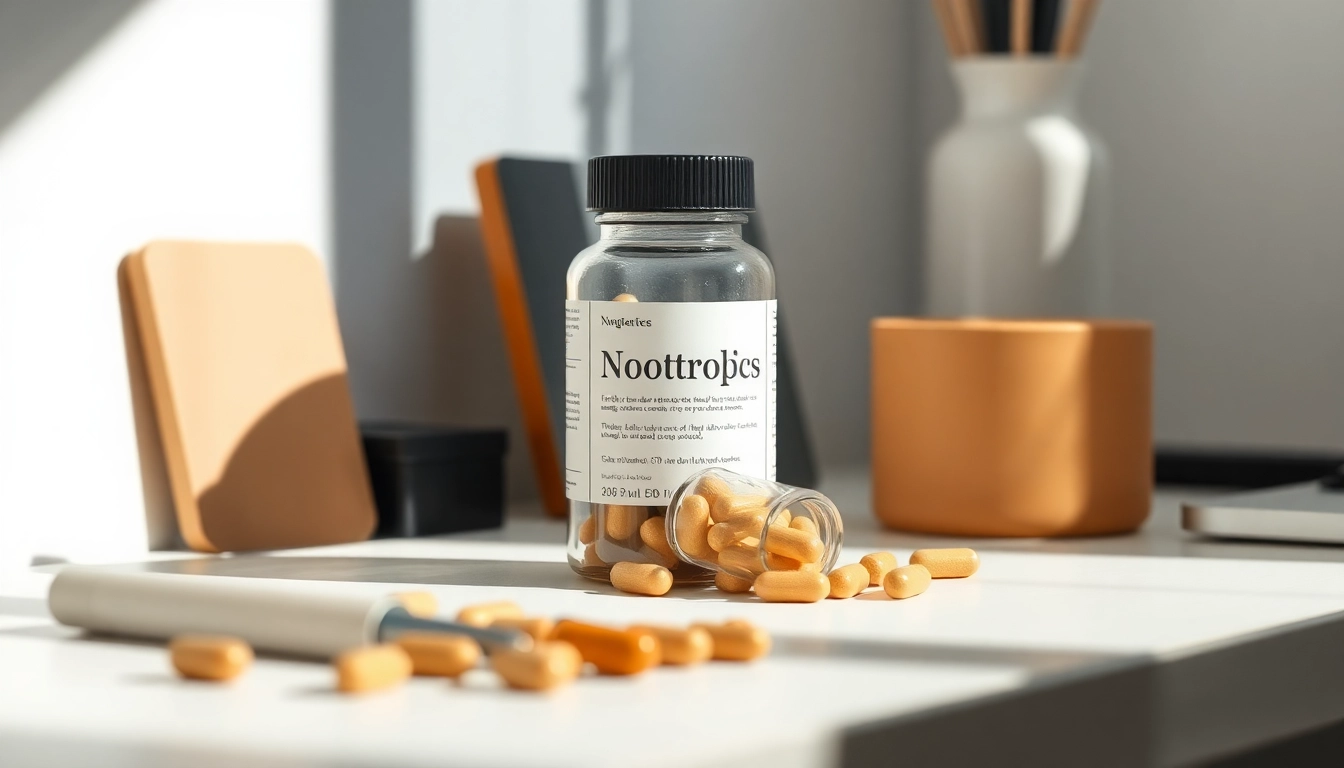Understanding Peptide Therapy
Peptide therapy has garnered increasing attention in recent years as a viable option for enhancing health and wellness. Utilized in various medical treatments, this innovative approach focuses on small chains of amino acids, known as peptides, to facilitate profound changes in the body’s physiological functions. Through Peptide Therapy, individuals may experience improvements in muscle growth, anti-aging benefits, cognitive function, and overall vitality.
What are Peptides?
Peptides are short chains of amino acids, typically consisting of 2 to 50 amino acids, that play critical roles in biological functions. They serve as the fundamental building blocks of proteins and are involved in signaling pathways, hormone regulation, and immune responses. Each peptide has a unique sequence that directs its specific biological effect. For instance, insulin is a peptide hormone that regulates glucose levels in the blood, while peptide signaling can influence muscle growth, fat loss, and even mood balance.
The Science Behind Peptide Therapy
Peptide therapy leverages the natural capabilities of peptides to restore balance and promote healing within the body. The therapy typically involves administering specific peptides, either through subcutaneous injections or oral supplements. Upon entering the bloodstream, these peptides can bind to receptors on cells, mimicking the actions of naturally occurring hormones and growth factors. This action enhances cellular communication and stimulates biological processes that may have diminished due to aging, metabolic disorders, or chronic conditions.
How Peptide Therapy Works
The effectiveness of peptide therapy can be attributed to its ability to target various pathways in the body. The therapeutic process begins with a consultation wherein healthcare professionals assess individual health needs and goals. Following this assessment, tailored peptide regimens are developed to target specific issues, such as inflammation, muscle wasting, or hormonal imbalances. During treatment, the selected peptides stimulate the body’s natural healing processes, promoting regeneration and improved functionality.
Benefits of Peptide Therapy
Therapeutic Advantages of Peptide Therapy
The advantages of peptide therapy extend across a wide range of therapeutic applications. These benefits include enhanced muscle growth and repair, increased metabolism, improved recovery from injuries, and stronger immune responses. Some peptides are specifically designed to stimulate the release of growth hormone, which may lead to greater muscle mass and reduced body fat. Patients often report elevated energy levels, improved mood, and better sleep quality following a regimen of peptide therapy.
Peptide Therapy and Anti-Aging
As the body ages, the production of vital hormones and growth factors declines. This reduction can result in decreased muscle tone, increased fat accumulation, and diminished cognitive function. Peptide therapy offers a promising solution for combating these effects of aging. For instance, peptides such as sermorelin and ipamorelin mimic the function of growth hormone-releasing hormone (GHRH), stimulating the natural release of growth hormone. This process can enhance muscle growth, energy levels, and skin elasticity, contributing to a more youthful appearance and vitality.
Comparative Benefits Over Traditional Treatments
Peptide therapy provides several advantages over traditional treatments for various conditions. Unlike synthetic hormones that often carry a risk of serious side effects, peptides offer a more targeted and natural approach to therapy. The metabolic processes initiated by peptides are closely aligned with the body’s own physiological functions, which may result in fewer adverse effects. Additionally, peptides can be customized to each patient’s needs, offering a level of personalization that many conventional treatments lack.
Applications of Peptide Therapy
Peptide Therapy for Weight Loss
Weight management remains a critical focus in today’s health landscape. Peptide therapy has shown promise in supporting weight loss efforts. Certain peptides can help regulate appetite, increase metabolic rate, and facilitate fat oxidation. For instance, peptides like GLP-1 agonists mimic natural hormones that promote satiety, helping individuals feel fuller longer. This method can lead to reduced caloric intake and enhanced fat loss, making it an effective adjunct to diet and exercise.
Peptide Therapy in Athletic Performance
Athletes and fitness enthusiasts are increasingly seeking peptide therapy to boost performance and expedite recovery. Peptides such as BPC-157 (Body Protection Compound) have been linked to accelerated tissue healing and reduced recovery times from injuries. This therapy not only enhances physical capabilities but may also contribute to increased endurance and strength gains, allowing athletes to maximize their potential and overcome performance plateaus.
Medical Uses of Peptide Therapy
In the medical field, peptide therapy is used to treat various conditions, including diabetes, osteoporosis, and certain cancers. Therapeutic peptides can enhance the patient’s quality of life and support the management of chronic diseases. For example, peptide therapy can stimulate insulin secretion in patients with type 2 diabetes, assisting in better glycemic control. Moreover, ongoing studies explore the role of peptides in cancer treatment, particularly in targeting tumor growth and enhancing the efficacy of existing therapies.
Considerations Before Starting Peptide Therapy
Potential Side Effects of Peptide Therapy
While peptide therapy is generally considered safe, potential side effects can occur. Patients may experience localized reactions at the injection site, including redness or swelling. Some might report mild gastrointestinal discomfort or headaches. As with any therapy, it is essential for individuals to discuss potential risks with their healthcare provider. Understanding one’s health status and acknowledging contraindications is critical for ensuring safety during peptide therapy.
Regulatory Status of Peptide Therapies
The regulatory environment surrounding peptide therapies can differ based on geographical location and the specific peptides in question. In many regions, certain peptides are classified as investigational drugs, meaning they are still undergoing rigorous clinical trials. It is essential for patients to verify the approval status of specific peptides through regulatory agencies and ensure they are receiving treatments from licensed practitioners to mitigate risks associated with unregulated therapies.
Consultation and Safety Measures
Before embarking on peptide therapy, a thorough consultation with a qualified healthcare provider is imperative. This assessment should include a review of medical history, current medications, and an understanding of the patient’s health objectives. Practitioners should also incorporate routine monitoring throughout the therapy to track progress and adjust dosages as necessary. Adhering to safety protocols ensures that the therapy is personalized and beneficial for the individual.
The Future of Peptide Therapy
Emerging Trends in Peptide Research
As research in peptide therapy expands, several emerging trends are likely to shape the future of this treatment modality. Researchers are exploring new peptides that possess distinct biological activities, focusing on their potential applications across numerous health issues. Advancements in biotechnology are enabling the development of more efficient synthesis processes, allowing for enhanced therapeutic agents. As clinical trials progress, the understanding of peptide mechanisms of action will evolve, paving the way for innovative treatments.
Innovations in Delivery Methods
Innovations in peptide delivery methods are crucial in optimizing the effectiveness of peptide therapy. Traditional injection methods may be supplemented with alternative delivery systems, such as transdermal patches or inhalation devices, improving patient compliance and outcomes. These developments aim to enhance the bioavailability of peptides and reduce the need for frequent injections, broadening the accessibility of this treatment option for a diverse population.
Projected Growth and Market Insights
The peptide therapy market is poised for significant growth as awareness spreads among consumers and healthcare providers. As more evidence emerges supporting the efficacy of peptides in various applications, demand for personalized healthcare solutions is expected to rise. Ongoing education and research will further illuminate the possibilities of peptides in enhancing health and preventing disease, establishing peptide therapy as a mainstay in modern medicine.



